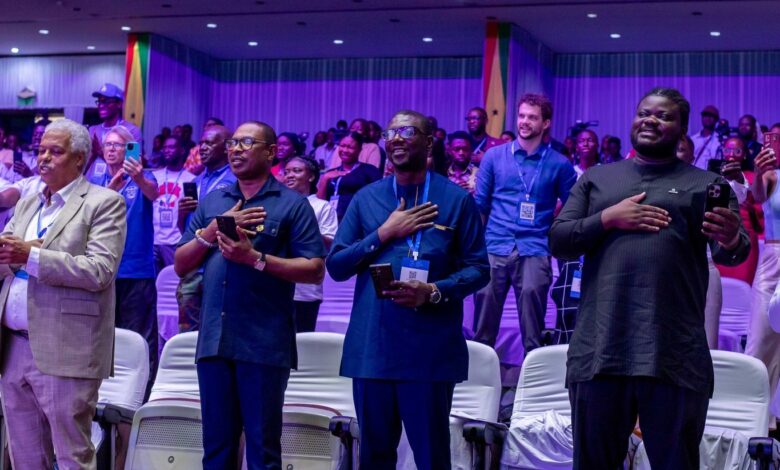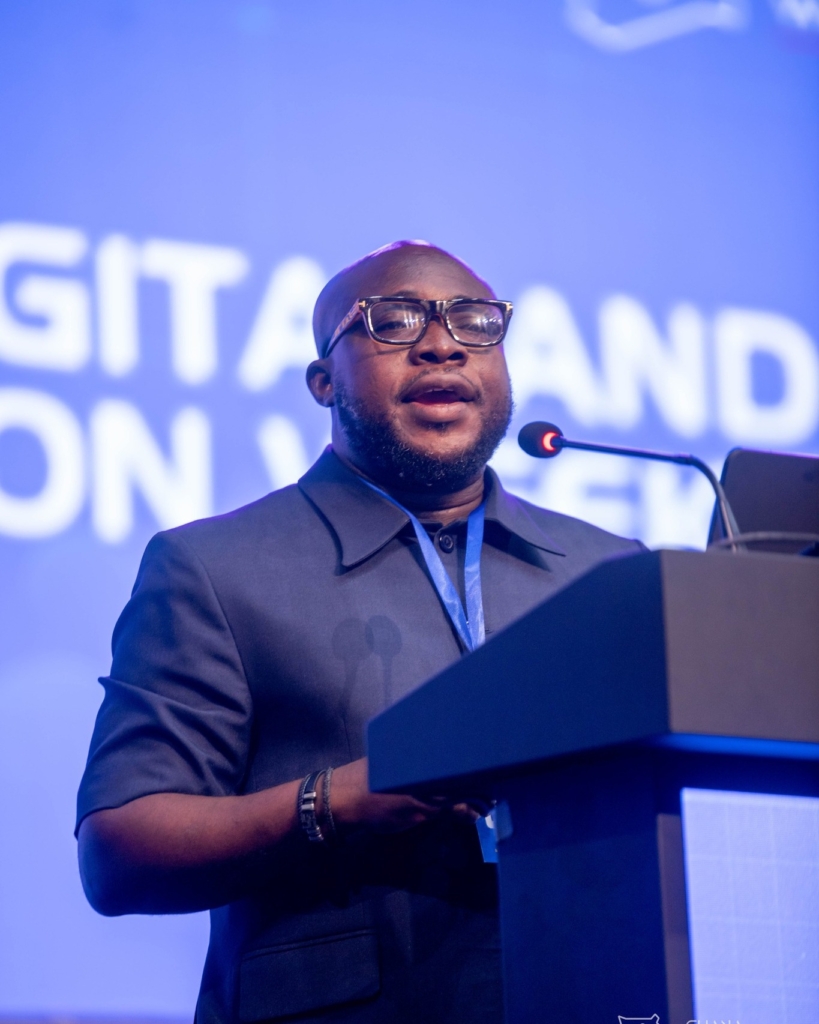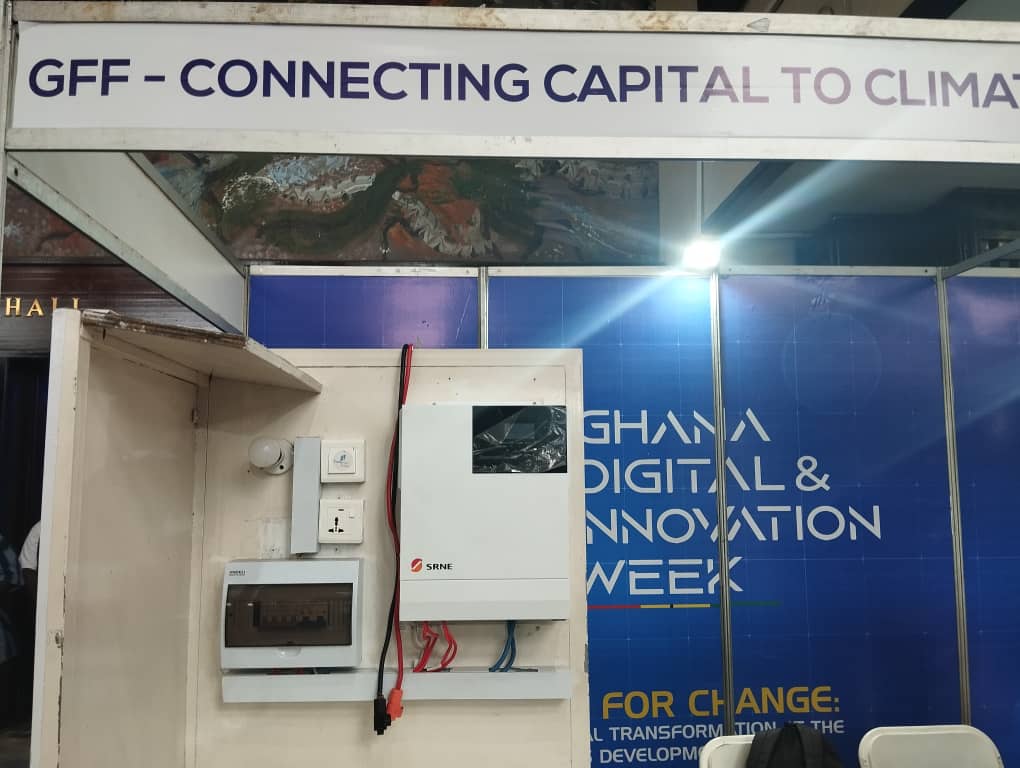Insights from the launch of the Ghana Digital and Innovation Week

The main hall of the Accra International Conference Centre hummed with anticipation as government officials, tech innovators, entrepreneurs, and students gathered for the launch of Ghana Digital and Innovation Week 2025. Against the backdrop of the theme “Catalysing for Change: Innovation and Digital Transformation at the Centre of Ghana’s Development Agenda,” the event set the tone for a week-long celebration of ideas, technology, and the country’s digital ambitions.
Joshua Opoku Agyemang, a young tech entrepreneur attending the launch, described the atmosphere as electric.
“You can feel the energy in the room,” he said. “It’s not just about showcasing gadgets or apps, it’s about the possibilities that digital innovation opens for our economy, our youth, and our communities.”

Envisioning a 24-Hour Digital Economy
Delivering an address, Dr Ishmael Nii A. Dodoo, Director and Head of Innovative Finance, Partnerships and Markets at the 24-Hour Economy Secretariat, urged Ghanaians to imagine a country where opportunity never sleeps.
“Imagine a Ghana where it no longer matters whether it’s 10 a.m. or 10 p.m. — where opportunities are open, jobs are created, and innovation never pauses,” he said. “That is the Ghana we are all working to build.”
He described young people as the “heartbeat of the 24-hour economy ambition,” emphasizing that digital transformation is the bedrock of that vision.
“We will need online education and finance platforms for young people to work globally, and smart systems that make our economy safe, efficient, and smart. Electrification is the backbone,” Dr Dodoo added, noting that without digital transformation, the 24-hour economy would remain only a dream.
Government Perspective
Mr Emmanuel Ofori, speaking on behalf of Hon. Sam George, Minister for Communication, Digital Technology & Innovations, reminded attendees that true national wealth lies not only in natural resources, but in ideas, data, and digital infrastructure.
“The Ministry’s goal is to build a digital economy where every Ghanaian and every business can thrive through innovation,” Ofori said, underscoring the government’s commitment to creating an enabling environment for startups, tech companies, and entrepreneurs to contribute meaningfully to the nation’s development.
Financing the Future of Innovation
On his part, Michael Abbey, CEO of the Venture Capital Trust Fund, said the government was committed to not just celebrating successes but redefining Ghana’s digital and innovation trajectory.
“A government that not only celebrates successes but fundamentally redefines the next-gen wave in technological innovation, scale, impact, and sustainability for many years to come,” he said.
Mr Abbey revealed that the Trust Fund, designated as a key implementing partner of President Mahama’s 24-hour economy strategy, is collaborating with the Secretariat to establish a fund providing patient capital to businesses seeking to leverage digital opportunities.

Michael Abbey, CEO of the Venture Capital Trust Fund
“Digital innovation and infrastructure will feature prominently in our strategy and policy design,” he affirmed, noting that access to risk capital remains essential for startups and entrepreneurs driving transformation.
Global Partners and Shared Goals
Representing the United Nations Resident Coordinator’s office, the Ghana United Nations Development Programme Head of Inclusive Growth and Accountable Governance, Dr Edward Ampratwum, explained the UN’s continued support for Ghana’s innovation ecosystem.
He emphasised that improved access to financial services, management skills, and enterprise support is key to fostering sustainability and inclusive growth.
“The theme for this year reminds us that innovation and research must be both national and international,” he said.
“Transformation and evolution are central to achieving durable peace, sustainable growth, and economic progress.”
Ampratwum reiterated that the UN’s collaboration with Ghana aligns with global goals focused on economic transformation, sustainable policies, and inclusive development.
Private Sector at the Heart of Change
The private sector’s role in driving Ghana’s digital transition was evident. Yaw Asante, commercial solar project development manager for Translight Solar Limited, on the sidelines of the launch, highlighted how renewable energy underpins innovation.
“We aim to ensure that nobody in Ghana goes without the joy of solar in their homes,” he said. “It’s difficult to understand why anyone with a commercial property wouldn’t install solar — it can cut ECG bills by up to 60 per cent while supporting sustainability.”
He added that digital monitoring tools now allow users to track their solar systems remotely, demonstrating how technology and clean energy are intertwined in Ghana’s modernisation story.

Making Technology Accessible
On the sidelines of the event, Onyekachi Oparah, Lead Solutions Consultant for Zoho MEA (West Africa), highlighted how companies like Zoho are working to democratize technology access for African businesses.
“We pride ourselves in building business tools that help organisations grow and scale,” he explained. “Our vision is to democratize software — making it affordable and accessible for small and mid-sized businesses, not just large corporations.”
Oparah explained that bridging the affordability gap is crucial if Ghanaian enterprises are to fully harness digital tools for competitiveness in global markets.
Beyond the keynote speeches and policy announcements, the launch hall was full of entrepreneurial energy as startups, tech companies, and digital solution providers set up exhibition booths to market their products and services.
Visitors moved between stalls showcasing innovations ranging from fintech platforms and e-learning tools to renewable energy solutions and AI-powered business applications.
Each setup was designed to demonstrate practical solutions for both consumers and enterprises, allowing attendees to interact with developers, test prototypes, and explore how these technologies could transform industries and everyday life in Ghana.
DISCLAIMER: The Views, Comments, Opinions, Contributions and Statements made by Readers and Contributors on this platform do not necessarily represent the views or policy of Multimedia Group Limited.
DISCLAIMER: The Views, Comments, Opinions, Contributions and Statements made by Readers and Contributors on this platform do not necessarily represent the views or policy of Multimedia Group Limited.
Source link





